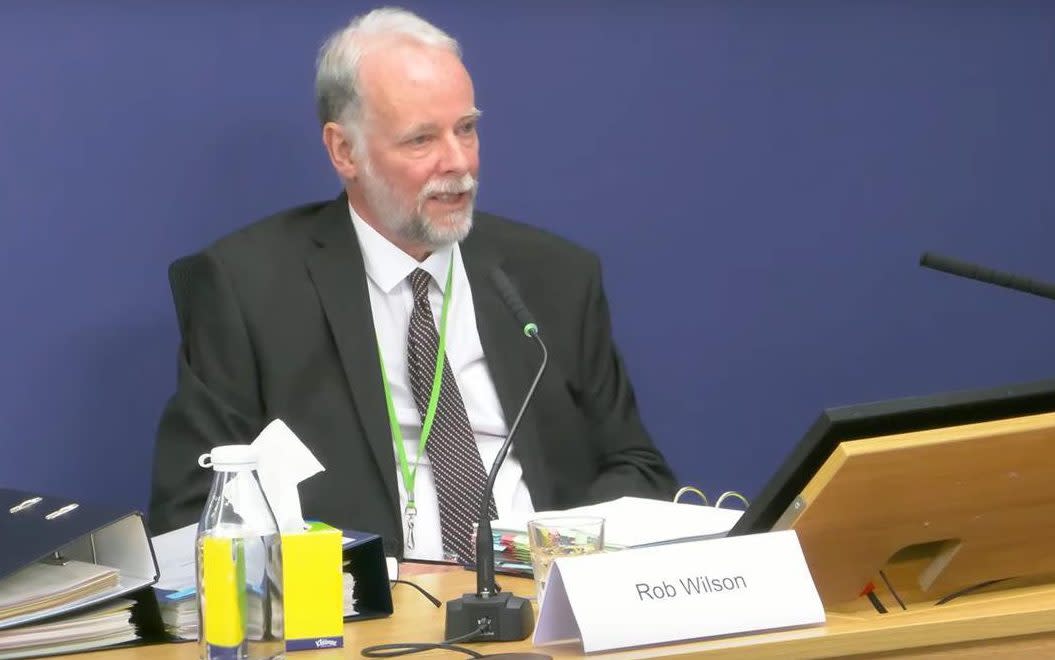Why Post Office rejected Horizon review five years before witch-hunt ended

The Post Office chose not to investigate issues with its Horizon software five years before the witch-hunt ended over fears it would undermine prosecutions, documents reveal.
More than 700 sub-postmasters were wrongly prosecuted by the organisation for false accounting, theft and fraud between 1999 and 2015.
However, internal emails show Post Office lawyers talked about investigating issues with the Horizon software as far back as 2010, but did not take action over fears it would undermine prosecutions.
It was eventually found that the software which flagged shortfalls was faulty.
The organisation’s head of criminal law stressed to colleagues the “consequences” of such a move would include pausing current and future prosecutions – an action which would attract “adverse publicity”.
Months later, an internal review commissioned by the Post Office stated that it was important to be “crystal clear” that any investigation launched into Horizon would “need to be disclosed in court”.
However, the Post Office did not divulge this information and continued to prosecute sub-postmasters and sub-postmistress – including a sub-postmistress who was sentenced to 15 months in prison while pregnant.
Politicians branded the latest revelations as “dreadful” and accused the Post Office of “blocking justice”.
Meanwhile, Alan Bates, the campaigner whose fight for justice was depicted in the ITV drama Mr Bates vs The Post Office, said he had “no doubt” that the organisation knew what state Horizon was in “for many years”.
Emails disclosed to the Post Office Horizon IT Inquiry reveal how Rob Wilson, who joined the Post Office as head of criminal law in 2002, responded to “difficulties” regarding the Horizon system.
Mr Wilson wrote the email after not being invited to a conference call with colleagues about Horizon.
Responding to a memo from another colleague which suggested several actions which included “conducting full investigations into integrity issues”, Mr Wilson wrote on March 3, 2010: “If it is thought that there is a difficulty with Horizon then clearly the action set out in your memo is not only needed but is imperative.
“The consequence however will be that to commence or continue to proceed with any criminal proceedings will be inappropriate.”
Mr Wilson went on to say that “inevitably” defence solicitors for accused sub-postmasters would argue that any ongoing investigation would show the Post Office did “not have confidence” in Horizon and that to continue to prosecute would be “an abuse of the criminal process”.
He then suggested that proceedings for prosecutions could be paused pending an outcome, but added: “If this were to be adopted the resultant adverse publicity could lead to massive difficulties for POL as it would be seen by the press and media to vindicate the current challenges.”
It comes as covert recordings allegedly show the Post Office knew about problems with Horizon at least two years before chief executive Paula Vennells denied there were any issues.
The content of the tapes, shared with The Times, show that in 2013 the Post Office’s company secretary prepared a brief for Ms Vennells saying it was possible to access to Horizon accounts remotely without postmasters knowing, the paper reports.
This is at odds with the Post Office’s position that there had been no miscarriage of justice.
It is thought a jury would not have been able to conclude a guilty verdict if they knew accounts could be altered remotely.
In 2015 Ms Vennells wrote in an email that she needed to be able to say remote access wasn’t possible, before telling MPs at a business select committee there was “no evidence” of miscarriages of justice.
Mr Wilson’s email was sent five months before pregnant sub-postmistress Seema Misra was sentenced to 15 months in prison after a false shortfall of £74,000 was recorded at her branch in West Byfleet, Surrey.
She later said: “It’s hard to say but I think that if I had not been pregnant, I would have killed myself.”
Her conviction was cleared at the Court of Appeal in 2021.

Questioning Mr Wilson about his email at the inquiry, Jason Beer KC, the lead counsel to the inquiry said: “What you are saying by this email is, ‘The Post Office will be in serious trouble if we get on with an independent investigation into the integrity of Horizon’.”
Mr Wilson responded: “Well, not necessarily. It depends what the independent report was going to say.”
He then attempted to downplay the email by saying that he had “overreacted” after being excluded from a meeting.
Mr Wilson claimed it was not his “intention” to give a “whole bunch of reasons not even to look” – as suggested by Mr Beer.
He said: “I think that I overreacted to being excluded from what I saw as being critical to me as the head of the criminal law team.”
When contacted by The Telegraph about the emails, Mr Bates said: “In my mind there’s no doubt that they’ve always known what state [Horizon] has been in. They’ve known for many, many years. I have no doubt on that.”
He added: “I’m not surprised in the slightest. As I’ve always said, it was either arrogance or ignorance in there, and I think it was both sometimes.”
Post Office ignored Ismay Report
Concerns that an investigation into any potential software issues were also backed up by the Post Office’s failure to respond to an internal review, which was later dubbed the Ismay Report.
Commissioned by the Post Office, former Ernst & Young auditor Rod Ismay admitted to the inquiry that he had been tasked with finding “reasons for assurance” and that his remit was not investigating “allegations” against Horizon.
However, his report made clear the consequences of looking further into any issues with the system.
The document, published in August 2010, read: “It is also important to be crystal clear about any review if one were commissioned – any investigation would need to be disclosed in court.
“Although we would be doing the review to comfort others, any perception that POL doubts its own systems would mean that all criminal prosecutions would have to be stayed.”
Meanwhile, Dave Pardoe, then one of the Post Office’s senior security managers, told the inquiry that it was clear the impact on other prosecutions was a concern.
He testified last November: “There was a persistent sentiment that the system was fit for purpose.”
“I was never in a meeting when it was discussed with me the concept of putting the brakes on prosecution activity.”
He added: “It’s clear that there was a fear that to do that would immediately cast doubt on prosecutions that had been completed that had gone before. I was never privy to that type of conversation, no.”
Sir John Redwood, a senior Conservative MP and a former head of the No 10 policy unit, said: “These revelations are dreadful and I am appalled but not surprised that hundreds of people have been up against a Post Office blocking justice.
“That’s what it felt like at the time, and I knew from my own local experience that honest, decent people had been caught up in something that they couldn’t combat. I am shocked by it all.”
Sir Jacob Rees-Mogg, a former business secretary, said: “This gets worse and worse. The fact that prosecutions took place on mistaken evidence was bad enough, but failing to investigate when they were concerned that things were wrong is even less forgivable
He added: “Anybody who has prosecutorial authority has a duty to justice – it’s not that you’re arguing a case, it’s that you’re risking somebody’s liberty.”
A Post Office spokesman said: “We fully share the aims of the current public inquiry, set up to get to the truth of what happened in the past and accountability. “It’s for the inquiry to reach its own independent conclusions after consideration of all the evidence on the issues that it is examining.”

 Yahoo News
Yahoo News 
